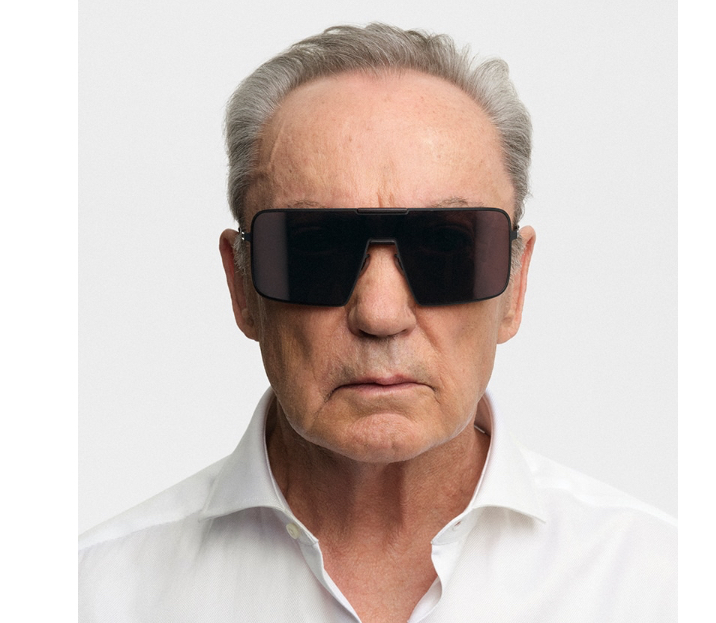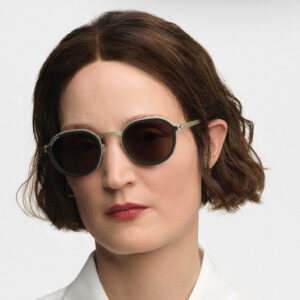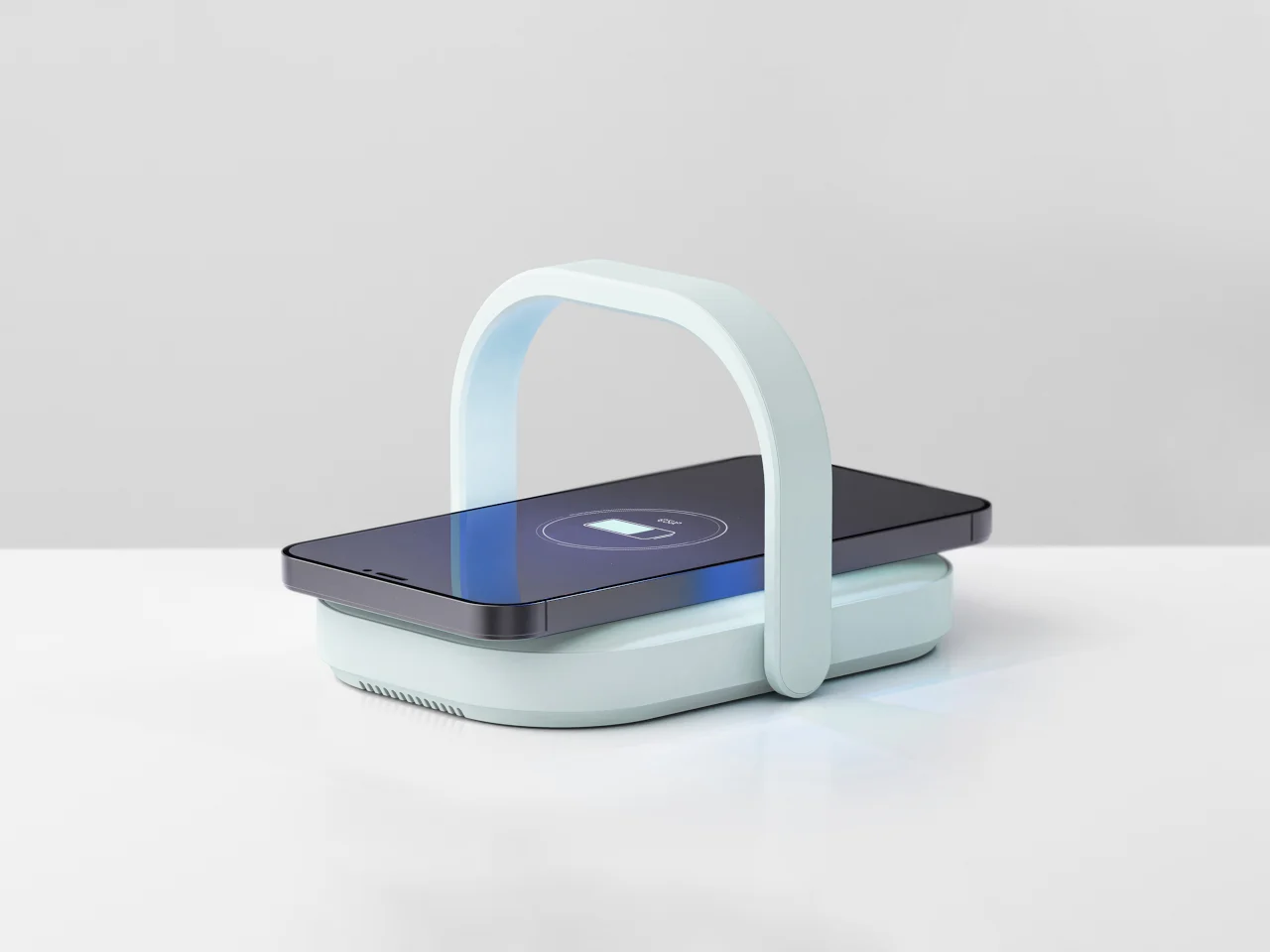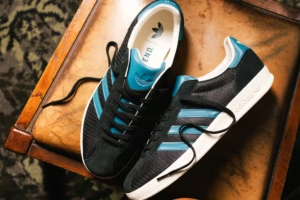In an era where connections often lean into trend-driven gimmickry, the union between RIMOWA and MYKITA arrives as something else entirely: a study in restraint, resilience, and refined utility. The collaboration—launched during Spring 2025 and previewed with a minimalist visual campaign—offers a sunglasses collection that is not only aesthetically sharp but mechanically brilliant. It’s a design dialogue between two brands obsessed with materials, both of whom built reputations by crafting products that must endure movement, weather, and time.
RIMOWA, the Cologne-based purveyor of grooved aluminum luggage since 1898, has become synonymous with purposeful luxury. MYKITA, hailing from Berlin, is known for its no-screws eyewear systems and frame constructions that blur the line between architecture and accessories. Together, they’ve created a product that feels less like fashion and more like precision gear for the face—tools for both vision and style, molded for a life in transit.
Two German Powerhouses, One Language of Precision
At first glance, RIMOWA and MYKITA operate in adjacent but not overlapping fields: one focused on protecting belongings during global travel, the other on designing eyewear that resists fatigue and fuss. But a closer look reveals that both brands share a deep devotion to mechanical clarity.
RIMOWA’s luggage has long stood apart due to its emphasis on material specificity—first polycarbonate, then aluminum-magnesium alloys—and a design ethos that values function through form. MYKITA, for its part, has become known for its patented hinge systems, minimalist silhouettes, and in-house prototyping, creating frames that are featherlight yet extraordinarily robust.
This merge doesn’t meet in the middle. It elevates both disciplines simultaneously.
The Collection: Modular, Monochrome, Mechanically Beautiful
The RIMOWA x MYKITA collection consists of three unisex sunglasses models, each forged from MYLON—a proprietary polyamide-based material that combines strength and featherweight flexibility. The process behind MYLON involves 3D-printing via Selective Laser Sintering, followed by a series of heat treatments that result in frames that are virtually indestructible yet remarkably light.
The silhouettes—named RIMOWA MYKITA MOD 001, MOD 002, and MOD 003—each offer a slightly different personality. MOD 001 leans into angular classicism with aviator roots, while MOD 002 embraces round, slightly oversized lenses with a modernist inflection. MOD 003 delivers a futuristic wraparound feel, nodding to sport optics but rendered in matte neutral tones that could just as easily accompany a tailored trench coat.
Each pair is equipped with temple arms that resemble the grooved geometry of RIMOWA’s luggage shells, but softened into ergonomic curves that hug the head. The lenses, produced in collaboration with Carl Zeiss Vision, offer 100% UVA and UVB protection, as well as anti-glare coatings suited for both alpine glare and urban reflection.
And in a detail that will thrill design nerds, the signature MYKITA hinge system—free from screws, nuts, or extraneous mechanics—is visible but discreet, operating more like a micro-engineered clasp than a conventional eyewear hinge.
Traveling Through Texture
It’s not just the shape of these glasses that resonates with RIMOWA’s DNA—it’s the tactility. The finish on each frame is textured to echo the brushed surfaces of a RIMOWA suitcase. Running a fingertip across the bridge reveals a surface that’s been engineered, not just molded—a matte grain that resists oil, holds its line, and gives the glasses a tactile presence rarely found in fashion eyewear.
This is the kind of visual coherence that only comes from two design teams speaking the same language: materials-first thinking. No flamboyant branding. No Instagram bait. Just tonal elegance built to live inside a travel culture that values silence, strength, and subtle sophistication.
A Collaboration Without Noise
In an era where the word “collaboration” often signals limited runs and celebrity marketing, RIMOWA x MYKITA takes a quieter approach. The co-branding is embossed inside the temple arms, not plastered across the lenses. There are no numbered editions. No celebrity face fronting the campaign. Instead, the partnership is introduced through moody photographs of the eyewear sitting on concrete plinths and inside bespoke travel cases—more object study than fashion ad.
This restraint isn’t a bug—it’s a feature. It echoes the design values of both brands: precision over pomp, functionality over flash. Even the packaging—a custom travel case that looks like a scaled-down RIMOWA mini trunk—feels engineered rather than marketed.
It’s a rare example of a fashion accessory that feels more like a technical tool designed for a design museum than a department store.
Eyewear for Nomads, Not Tourists
What this collaboration suggests, perhaps most powerfully, is that eyewear is no longer an accessory. It’s gear. And in a post-2020 world where mobility and personal protection have become more layered than ever, a pair of sunglasses isn’t just about looking good—it’s about resisting climate, travel fatigue, glare, chaos.
RIMOWA and MYKITA understand this at an existential level. Their customer isn’t a tourist—they’re a contemporary nomad, someone who values efficiency, precision, and permanence. Someone who treats travel not as escape, but as ritual. These glasses aren’t meant to be worn on a vacation—they’re meant to live with you.
The Culture of Durable Bespoke
There’s a bigger cultural shift embedded in this collaboration as well: the rise of durable luxury. Unlike trend cycles that push fast fashion and disposable aesthetics, both RIMOWA and MYKITA cater to consumers who buy once and buy well. This collection reinforces the notion that true luxury is not about novelty—it’s about endurance, evolution, and evidence of care.
The sunglasses are not cheap—retailing between €580 and €650—but that’s the point. They’re an investment in a relationship with design. And in a marketplace flooded with ephemeral partnerships, RIMOWA x MYKITA feels like something that could exist five years from now, ten years from now, and still feel relevant.
Berlin and Cologne: A German Design Romance
It’s worth noting the geographic subtext as well. MYKITA is based in Berlin, a city of experimental forms and creative disruption. RIMOWA, headquartered in Cologne, carries the legacy of West German industrial rigor. This partnership, in a sense, is a cultural merger of Germany’s two design psyches: the functionalist and the avant-garde, the Bauhaus and the brutalist.
This duality is present in every detail of the collection. The hardware whispers Berlin. The construction shouts Cologne. The result? A product that feels like the future of unified German craftsmanship—quiet, smart, and globally fluent.
Impression
The RIMOWA x MYKITA sunglasses collection is not for everyone. It’s not trend-driven. It doesn’t rely on clout or spectacle. What it offers instead is design discipline, the kind that whispers its superiority instead of broadcasting it. It’s eyewear as philosophy—an object meant to serve, adapt, and endure.
And in the context of a saturated fashion market, that restraint feels downright radical.
In the end, this collaboration isn’t about sunglasses. It’s about a shared belief in engineered emotion—the idea that objects, when crafted with care and clarity, can become something more than accessories. They become companions for the journey.
No comments yet.









